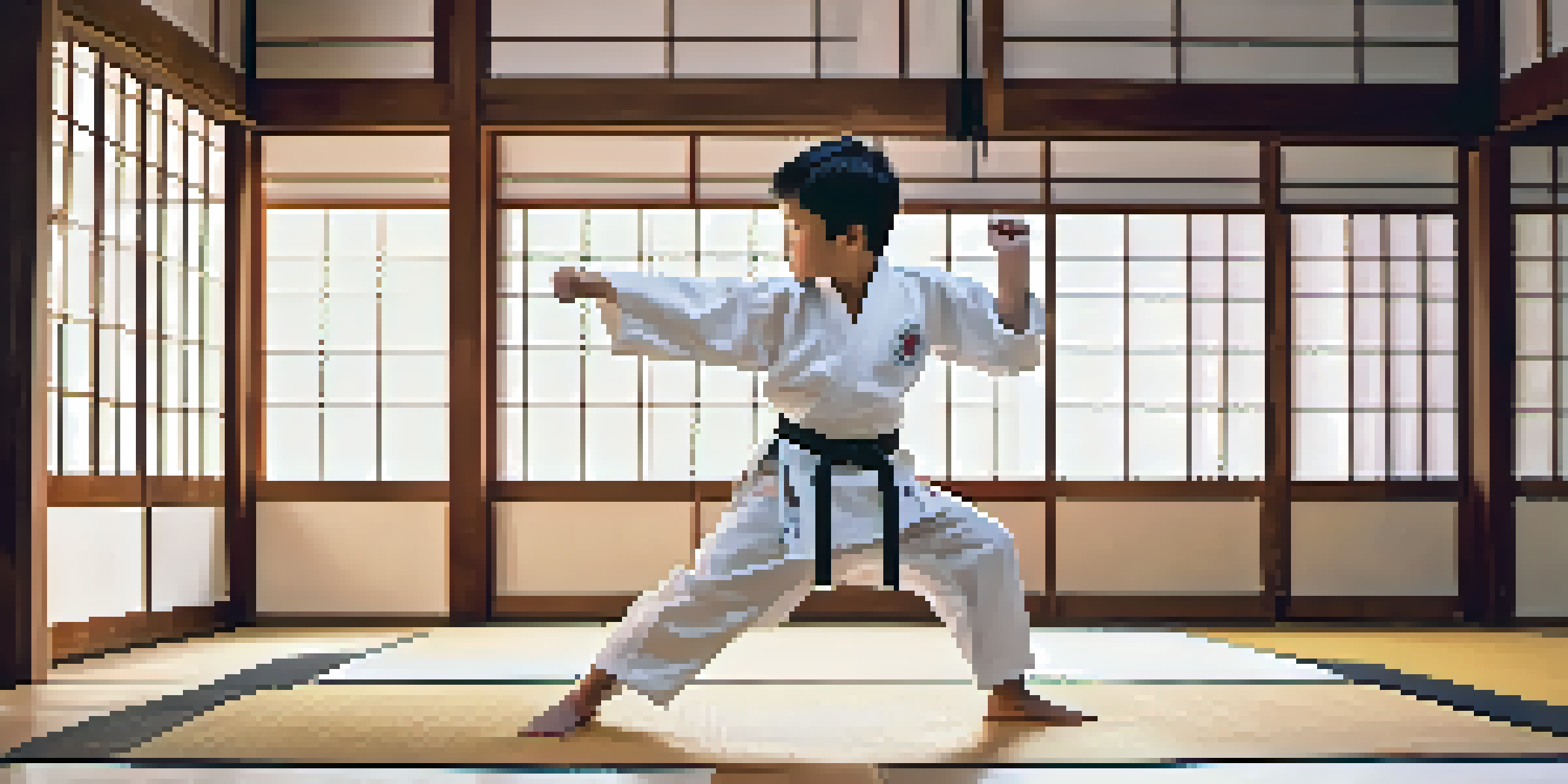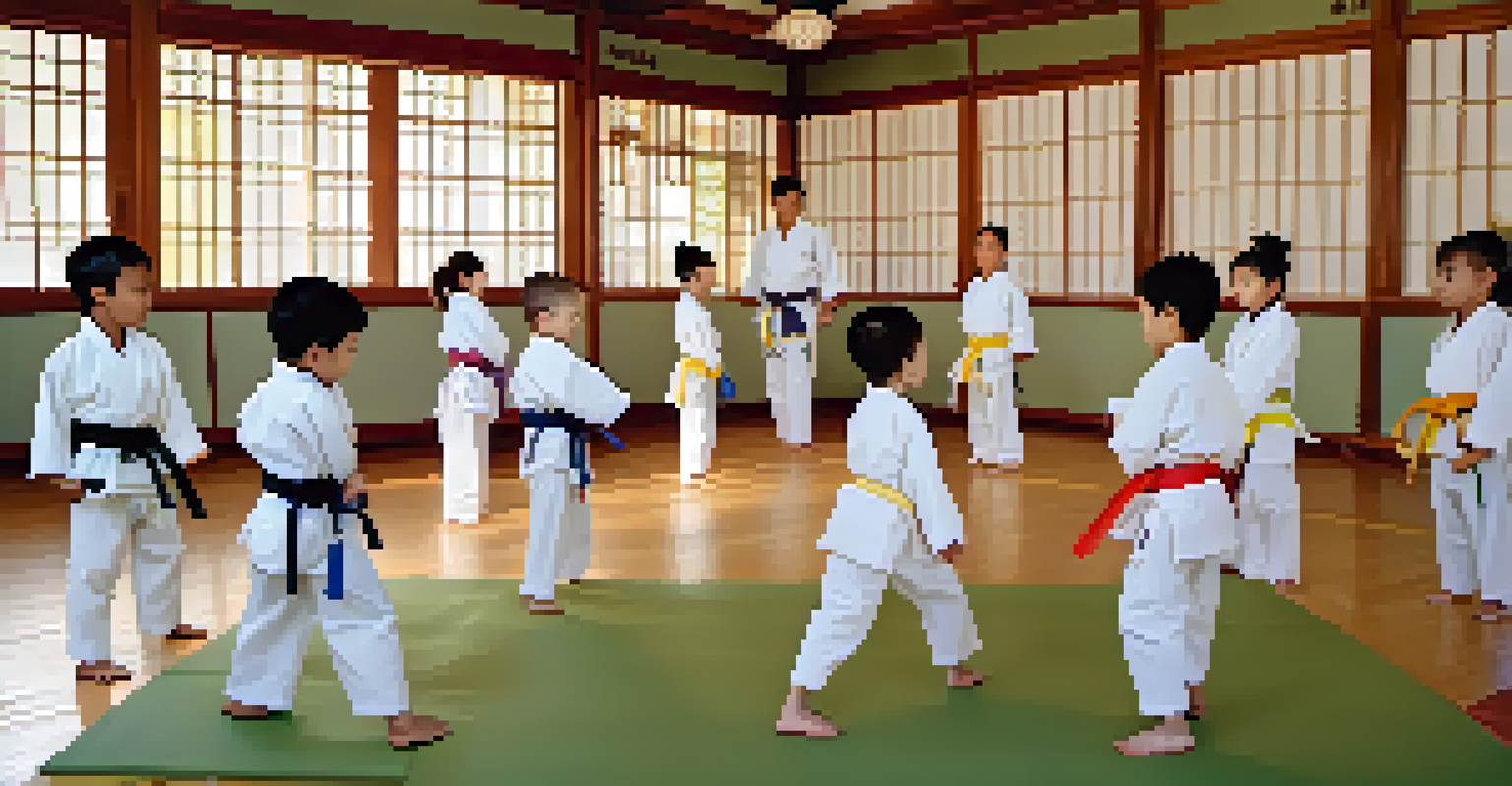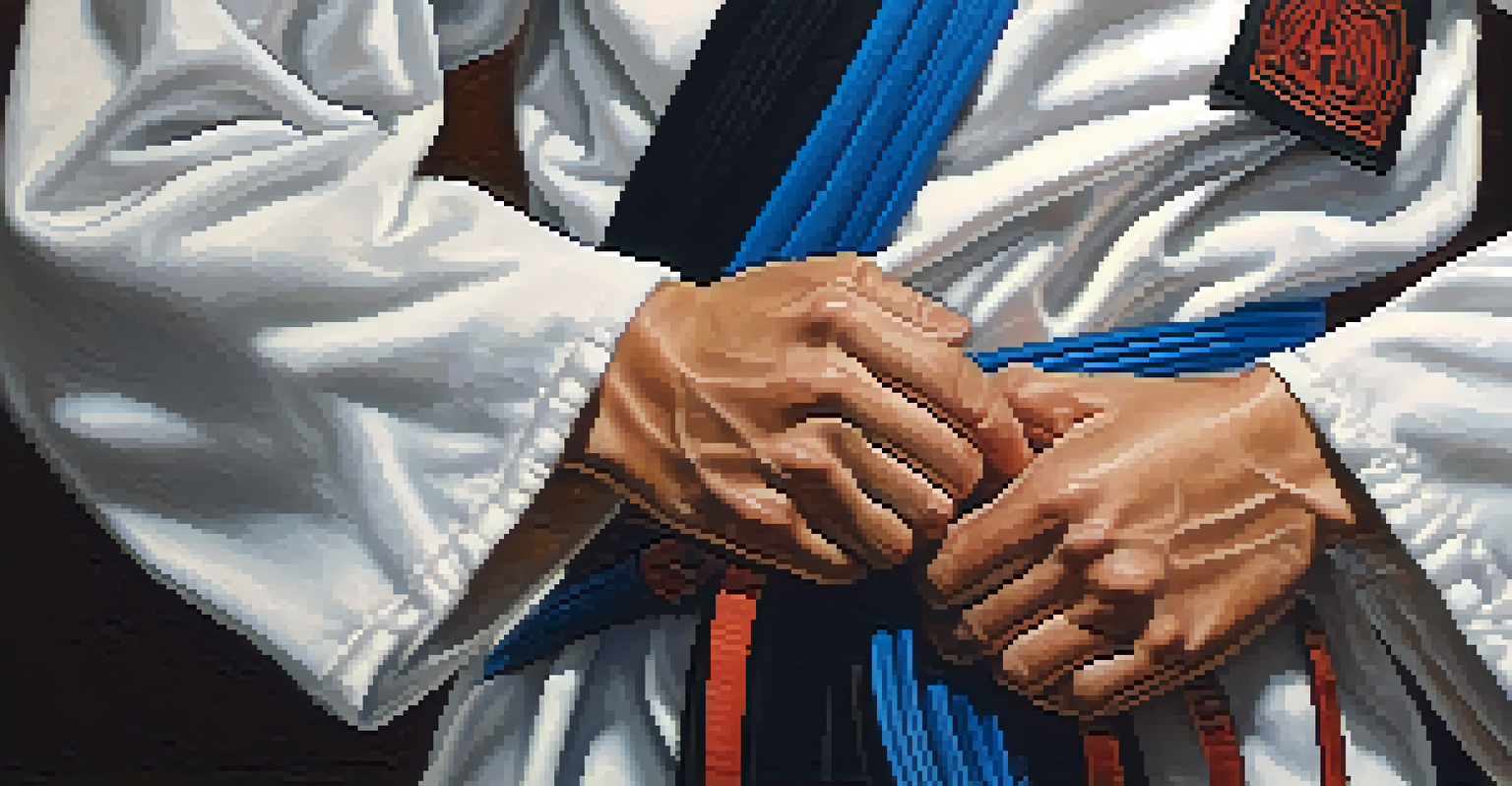Martial Arts as a Tool for Character Development in Youth

Understanding the Basics of Martial Arts for Youth
Martial arts encompasses a variety of combat practices, including disciplines like karate, judo, and taekwondo. These forms of training not only focus on physical techniques but also prioritize the mental and emotional growth of young practitioners. Engaging in martial arts offers youth a structured environment where they can learn discipline, respect, and perseverance, setting the foundation for their character development.
The ultimate aim of martial arts is not having to use them.
When children participate in martial arts, they are taught the importance of discipline right from the start. This means following the rules of the dojo and respecting both instructors and fellow students. Such lessons extend beyond practice sessions, helping kids understand the value of commitment and hard work in all areas of life.
Moreover, martial arts encourages students to set personal goals, whether that's mastering a new technique or achieving a new belt rank. This goal-oriented mindset cultivates a sense of purpose and drive, instilling in youth the belief that they can work towards and achieve their aspirations, both on and off the mat.
Building Resilience Through Challenges
One of the most significant benefits of martial arts training is the development of resilience. In martial arts, practitioners frequently face challenges, whether it's sparring with a partner or attempting to learn a complex move. Each time they fall or make mistakes, they are encouraged to get back up and try again, teaching them a powerful lesson about overcoming adversity.

This process of facing and overcoming challenges fosters a mindset that views setbacks as opportunities for growth. Young martial artists learn that failure is not the end but rather a stepping stone toward improvement. This outlook is crucial for building resilience, allowing them to tackle difficulties in school and other aspects of their lives with confidence.
Martial Arts Fosters Character Growth
Engaging in martial arts instills essential values like discipline, respect, and resilience in youth, aiding their overall character development.
As students progress in their training, they often find themselves pushed beyond their perceived limits. This not only helps them gain physical strength but also fortifies their mental toughness. The ability to push through discomfort and keep striving for success is a valuable life skill that stays with them long after they leave the dojo.
Promoting Respect and Discipline in Youth
Respect is a core tenet of martial arts, and it’s emphasized in every class through rituals like bowing to instructors and partners. This practice instills a sense of humility and teaches young people the importance of valuing others, regardless of their skill level. Learning to show respect in a martial arts setting translates into better interpersonal relationships outside of training.
Discipline is the bridge between goals and accomplishment.
Discipline is another critical aspect of martial arts that profoundly impacts a young person's character. Students are required to adhere to strict guidelines and routines, which helps them develop self-control and focus. As they learn to manage their impulses and remain disciplined, they become more capable of handling academic pressures and social challenges.
Ultimately, the values of respect and discipline learned in martial arts create a strong moral compass for youth. This foundation not only shapes their behavior in training but also influences their actions in everyday life, guiding them toward becoming responsible and respectful individuals.
Enhancing Confidence and Self-Esteem in Youth
Martial arts training is a fantastic way for young people to build confidence and self-esteem. As they learn new skills and improve their technique, they gain a sense of accomplishment that boosts their self-worth. This growing confidence often spills over into other areas of their lives, such as academics and social interactions.
Participation in martial arts also provides a supportive community, where young practitioners encourage one another. This camaraderie helps foster a sense of belonging, further enhancing their self-image. When kids feel accepted and valued within their training environment, they are more likely to carry that positivity into their interactions with peers.
Building Confidence and Self-Esteem
As young practitioners learn new skills and achieve goals, they experience a boost in confidence and self-worth that positively impacts other areas of their lives.
Additionally, as students progress through the ranks and earn belts, they experience a tangible recognition of their hard work and dedication. This acknowledgment reinforces their belief in their abilities, encouraging them to tackle challenges head-on and pursue their goals with enthusiasm.
Developing Goal-Setting Skills in Young Practitioners
Martial arts naturally incorporates goal-setting into its framework, making it an ideal environment for youth to learn this vital skill. Whether it's achieving a new belt rank or perfecting a specific technique, students are encouraged to set and work toward their goals. This structured approach helps them understand the importance of planning and persistence in achieving success.
Young practitioners learn to break their larger goals into smaller, actionable steps, which can be applied to various aspects of their lives. For example, if a student aims to achieve a black belt, they must first focus on mastering each preceding belt's requirements. This teaches the value of patience and incremental progress, essential skills for any ambitious individual.
As they work toward their goals, students also experience the satisfaction that comes with achievement. This reinforces the idea that hard work and dedication lead to tangible results, motivating them to apply the same principles in their studies and personal pursuits.
Encouraging Teamwork and Social Skills in Martial Arts
While martial arts often focuses on individual development, it also emphasizes the importance of teamwork. Many classes include partner drills and group activities that require students to work together, fostering collaboration and communication. These experiences help young people understand the significance of supporting one another to achieve common goals.
Through sparring and paired exercises, students learn to read their partner’s movements and respond appropriately. This not only sharpens their martial skills but also enhances their ability to listen and adapt in social situations. Such skills are invaluable as they navigate the complexities of friendships and group dynamics in school.
Teamwork Enhances Social Skills
Martial arts training encourages collaboration and communication among students, helping them develop teamwork and empathy in social situations.
Moreover, as they train with others, students develop empathy and respect for their peers, regardless of their abilities. This creates a sense of community within the dojo, where everyone feels valued and included. These positive social interactions contribute to a healthier self-concept and social competence.
Conclusion: The Lasting Impact of Martial Arts on Youth
In conclusion, martial arts serves as a powerful tool for character development in youth. By instilling values such as respect, discipline, resilience, and confidence, martial arts cultivates well-rounded individuals who are better equipped to face life's challenges. The skills learned in the dojo extend beyond the mat, shaping their interactions and experiences in the wider world.
As young practitioners continue their martial arts journey, they don’t just develop physical abilities; they also grow into responsible and respectful members of society. This transformation is a testament to the lasting impact that martial arts can have on character development, encouraging youth to become the best versions of themselves.

Ultimately, the lessons learned through martial arts can empower young people to carry their newfound values and skills into adulthood, creating a positive ripple effect in their lives and the lives of those around them.